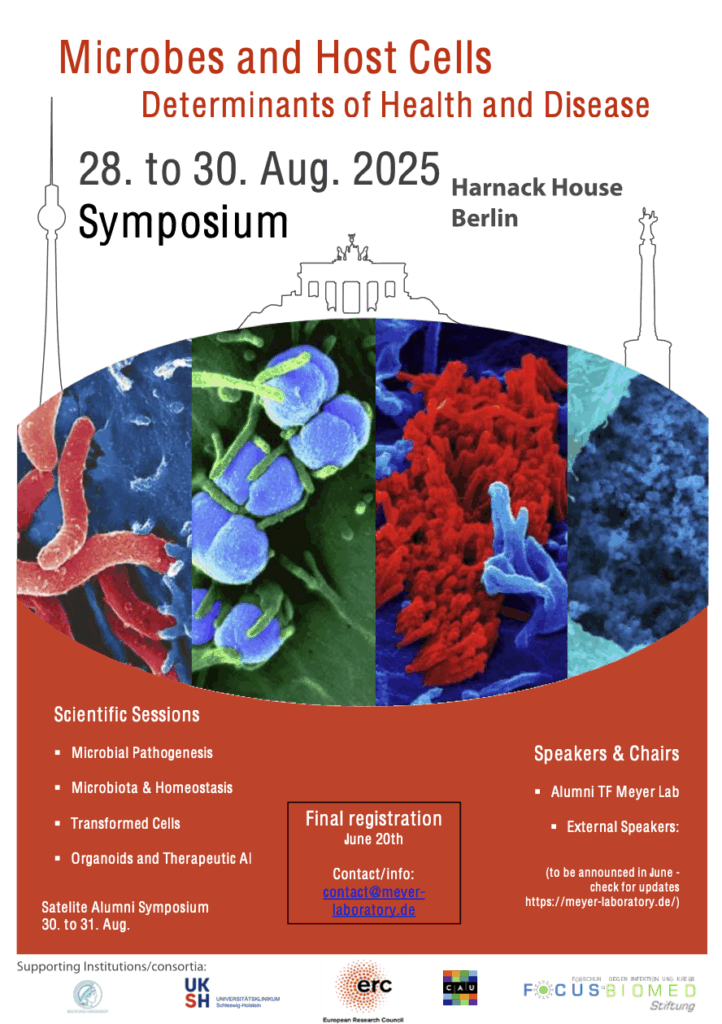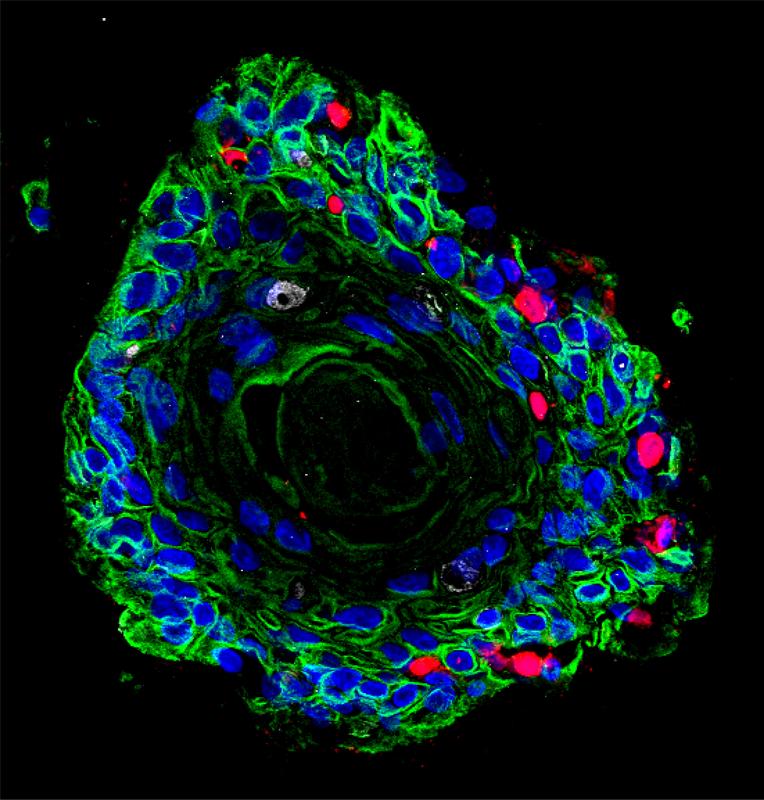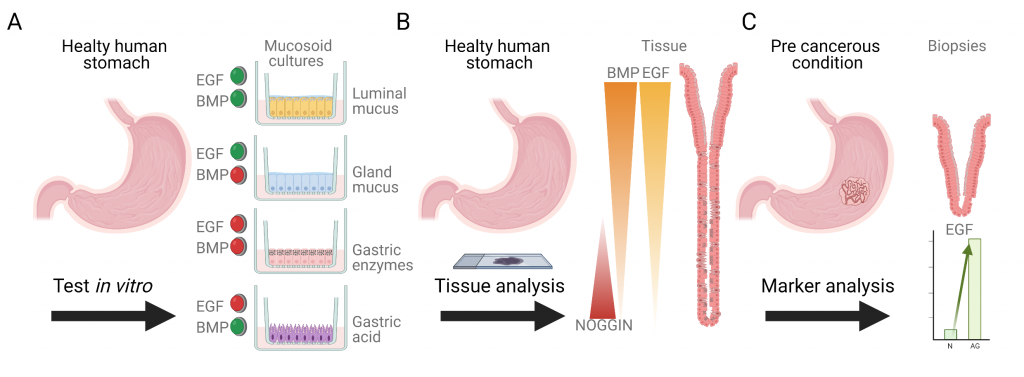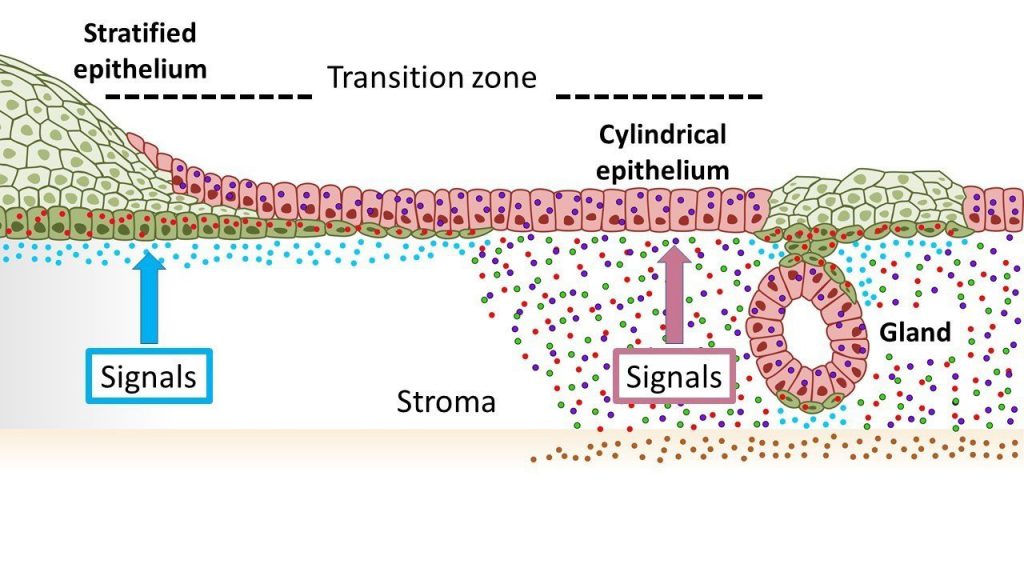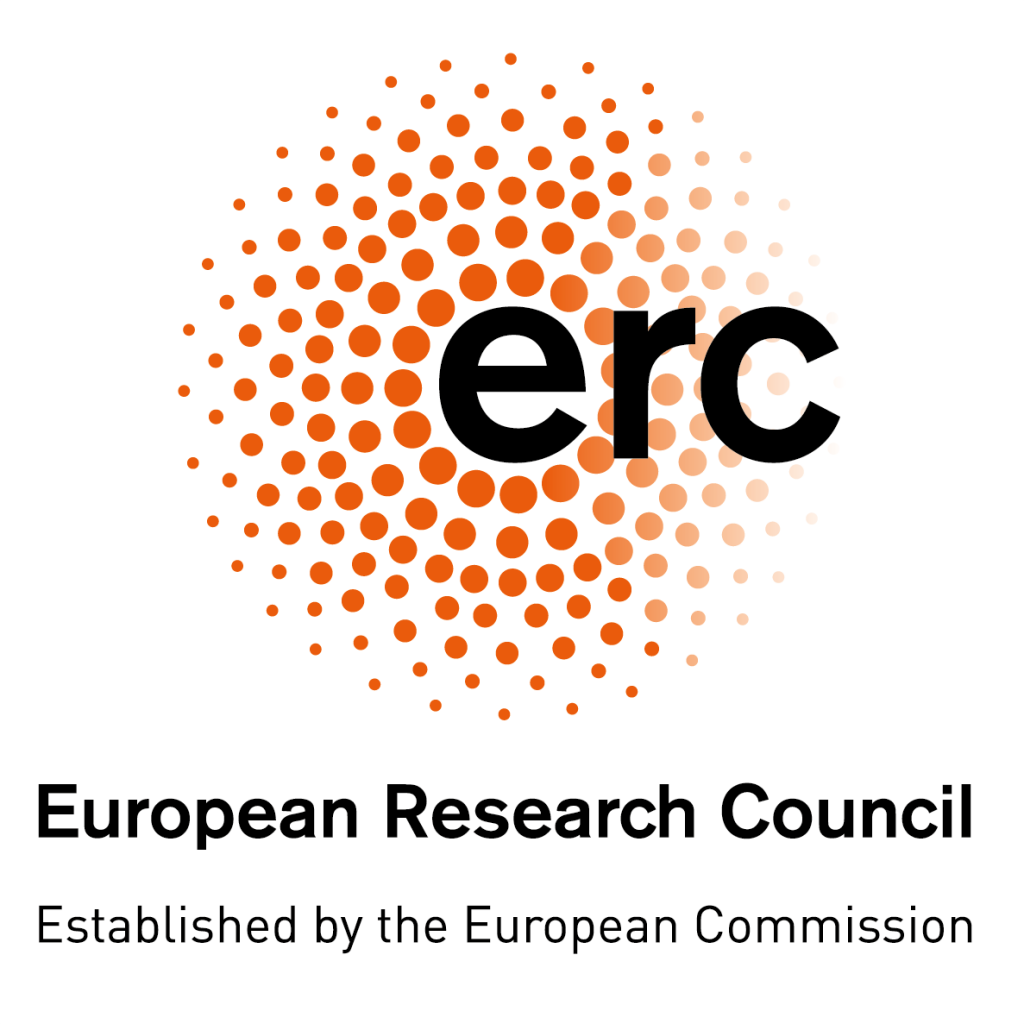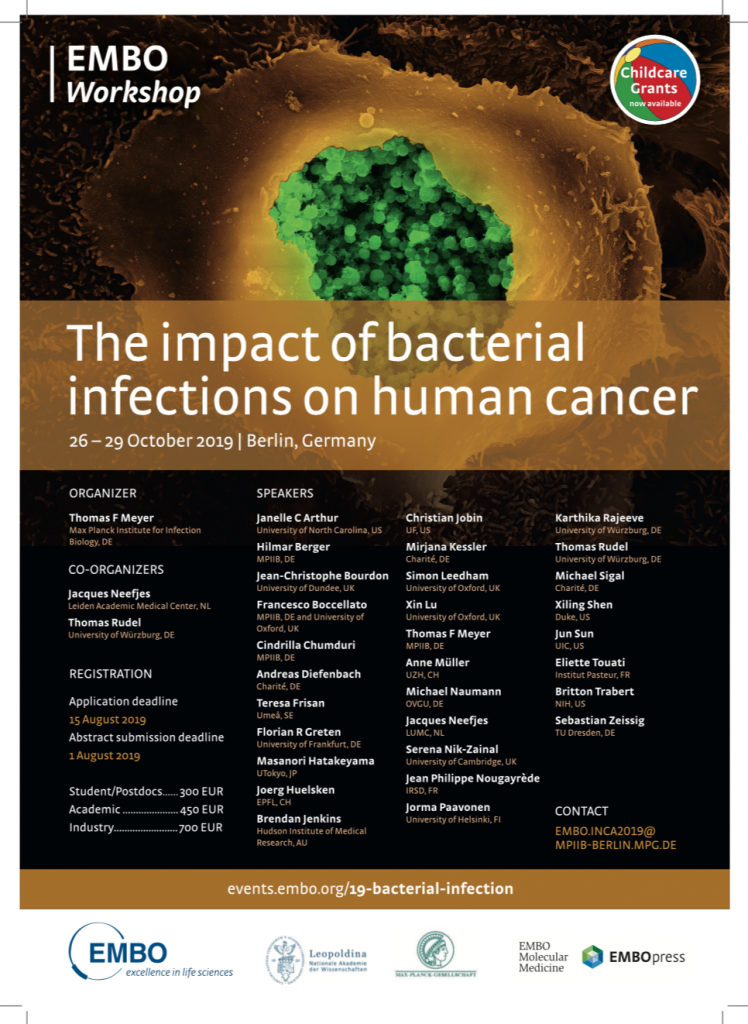International Symposium & Alumni Meeting 2025: Microbes and Host Cells – Registration Open
International Symposium & Alumni Meeting 2025: Microbes and Host Cells – Registration Open The TF Meyer Laboratory, in collaboration with its alumni from institutions of the Max Planck Society and Kiel University, is once again organizing an international symposium. This year’s program will spotlight pioneering topics at the intersection of…



